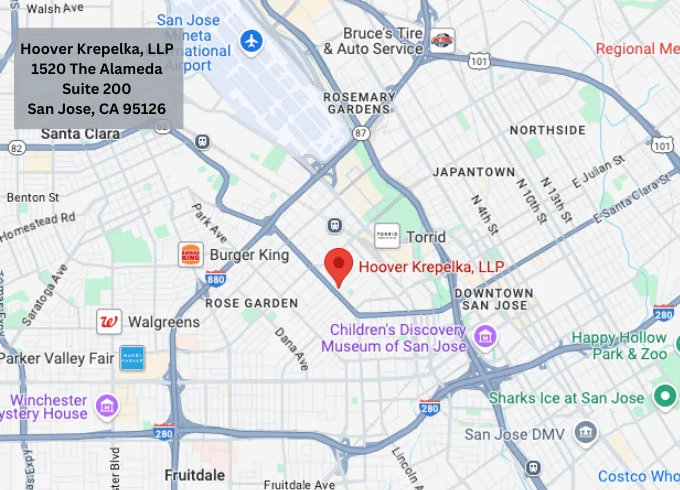When parents divorce, determining who gets custody of the child is a central area of focus, and is often a key point of disagreement. California values children maintaining strong relationships with both their parents after divorce, which is partially why joint custody decisions are so common. However, if their shared child has a mental health issue, the situation can be more complicated.
Child custody decisions are guided first by what is in the child’s best interest rather than what rights parents believe they are entitled to. For children with mental health disorders, the care they need to maintain their safety and well-being, and whether each parent is willing and able to provide it, can play a significant role in determining the custody arrangement. When the issue is disputed between parents, professional evaluations may be needed to provide a third-party perspective on what is necessary to protect the child’s welfare.
- A Child’s Mental Health and Custody Decisions
- Mental Health Professionals and Custody Evaluations
- Supporting a Child’s Mental Health
Worried the custody decision will harm your child’s mental health struggles?
A Child’s Mental Health and Custody Decisions

A child facing a mental health challenge has emotional and support needs beyond what would typically be expected of parents to handle. A custody decision will be guided in large part by determining to what extent each parent can provide a home environment conducive to stability and the child’s mental well-being, and how they engage with professionals such as therapists and teachers to help maintain a consistent approach to treatment. This may also include considering whether a parent’s geographical location makes it difficult for the child to access needed care such as regular therapy appointments or a specialized school.
Mental health issues that can be of concern for children include anxiety disorders, depression, behavioral problems such as oppositional defiant disorder (ODD), eating disorders like anorexia or bulimia, post-traumatic stress disorder (PTSD), and beyond. The court will mainly focus on the severity of the issue and the extent to which it interferes with the child’s ability to function or poses a risk to their safety, not just the diagnosis itself.
Mental Health Professionals and Custody Evaluations
Unfortunately, when divorcing parents disagree over what should be done to effectively treat their child’s mental health issue (or even whether the diagnosis is valid), it can be necessary to bring in the testimony of mental health professionals and outside evaluators to guide a custody decision. For example, a child’s therapist may be called in to testify regarding the child’s emotional state, behavior issues they’ve observed, and their understanding of the family dynamic. However, in contentious cases, the court is likely to order a child custody evaluation by an outside evaluator to make a recommendation on a parenting plan.
Child custody evaluations look at a wide range of information in determining what is best for a child’s health, welfare, and safety. This will include interviews with both parents and the child, as well as observations in the home environment.
An evaluator may also interview key adults in the child’s life, such as their teacher(s), therapist(s), and doctors, and review educational and healthcare records. The parents may also be required to undergo psychological evaluations themselves as part of a custody evaluation. A child custody evaluator’s assessment can strongly influence the outcome of a child custody case.
As an additional safeguard, a minor’s counsel can be brought in to provide independent legal representation on behalf of the child. The court must appoint the minor’s counsel if they decide it is in the child’s best interest to do so, but a parent can request such an appointment be made.
Supporting a Child’s Mental Health

When there is a question of parental fitness and ability to support their child’s mental health, an evaluator is not necessarily looking for or expecting to find perfection. Instead, they will be examining the parent’s commitment to prioritizing their child’s emotional well-being and safety.
This is demonstrated first by being frank about the child’s mental health condition, the challenges it creates, and the steps taken to address them. The parent should know and understand the child’s treatment plan, communicate effectively with their mental health providers, actively participate in therapy as and when appropriate, and be able to show how they have implemented a therapist’s recommendations.
Information about the parenting practices they use to provide a stable environment and help their child develop healthy coping mechanisms is also key. Parents should avoid downplaying the severity of the issue or blaming others for the child’s struggles, as these tactics may convince an evaluator that they are not equipped to put their child’s mental health first.
Expert Family Law Representation for Child Custody Cases in Silicon Valley
The upheaval of a divorce takes its toll on everybody in a family, including the children. If you’re worried that the end of your marriage will result in a custodial arrangement harmful to your child’s mental health struggles, the compassionate attorneys at Hoover Krepelka can help. We work with educational and therapeutic consultants from The Bodin Group to assist with custody evaluations that clarify what is truly in the child’s best interest. Our experience in difficult custody disputes informs our work in building the strongest possible case to protect your child’s well-being. To schedule your consultation, fill out the form below today.
———————————————————————————————————————————————————————
Contact Us
"*" indicates required fields







